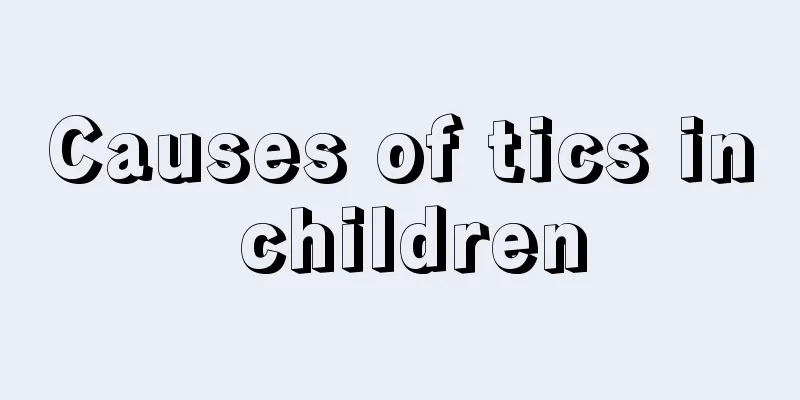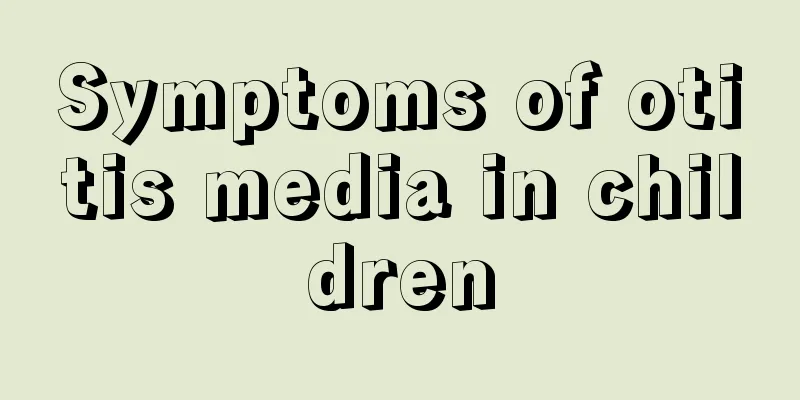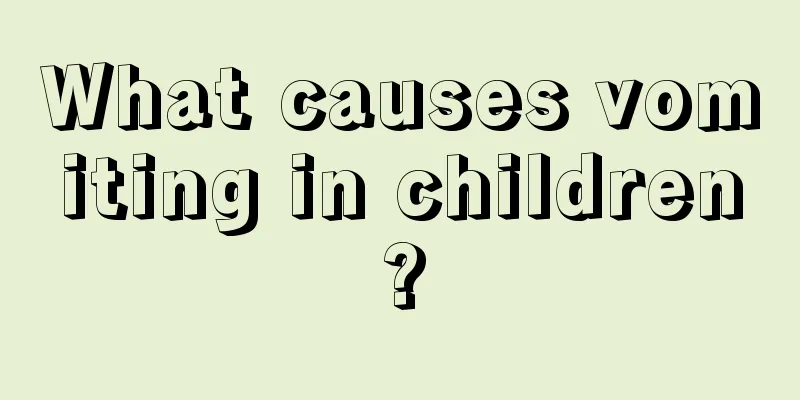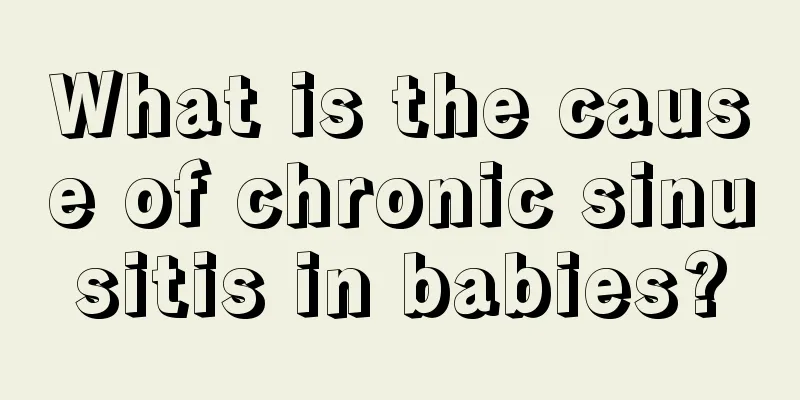Causes of tics in children

|
Infant tics are also a relatively common disease today. Most parents believe that the reason their children suffer from infant tics is due to physical factors. In fact, physical factors are only part of the reason for childhood tics. Another part may be due to psychological reasons, which may be reflected in the family environment that parents usually create for them. Therefore, parents should also pay attention to their children's psychological growth. Let’s take a look at the causes and dangers of tics in children. Psychological factors: Common psychological factors include being frightened, emotionally excited, sad, children’s heavy study burden, long-term anxiety, watching thrilling TV shows, novels and exciting cartoons, experiencing unpleasant events in life, etc. Family factors: strained relationship between parents, divorce, scolding or beating children, parents’ overly strict discipline of children, bad family environment, etc. Physical disease: Infectious factors: respiratory tract infection, tonsillitis, rhinitis, pharyngitis, conjunctivitis, trachoma and other local irritations. Various infections such as chickenpox, various types of encephalitis, hepatitis, especially streptococcal infection, may cause the sudden onset of severe tics. Therefore, this disease is also known as pediatric autoimmune neuropsychiatric disorder associated with streptococcal infection. Drug-induced factors: Children who take antipsychotics or central nervous system stimulants for a long time. Behavioral imitation: Some children are very interested in other people's behaviors such as blinking, twitching nose, clearing throat, etc., and they imitate them repeatedly and gradually make the behaviors fixed. Genetic factors: If there is a Tourette syndrome patient in the family, the chance of developing the disease is significantly higher than if there is no Tourette syndrome patient in the family, so it is believed to be related to family heredity. When a child has a tic, his or her unsightly appearance often attracts the attention of others, who may lead to gossip or ridicule. It causes psychological pressure on children and worry for parents. In fact, mild tics can disappear naturally and will not leave any sequelae, so there is no need to worry too much. Severe or chronic tics will affect children's daily life, learning, and social interaction. It causes children to have psychological problems such as anxiety, depression, and inferiority complex. Some children may develop hyperactivity, impulsive behavior, skip school and have conduct problems, and may even develop personality disorders and are prone to antisocial psychology. So seek timely treatment. Understanding the causes of tics in children is helpful in treating the disease fundamentally, while understanding the dangers of tics in children is helpful in increasing parents' attention to their children. Therefore, parents should learn more about tics in children so that they can be prepared for any eventuality. |
<<: Treatment of infantile tics
>>: What are the symptoms of tics in children?
Recommend
How to care for children with colds and repeated fevers?
Children are young and their immunity is not yet ...
Baby's fever is to increase resistance
It is a very common phenomenon in life that babie...
What causes swollen lymph nodes under the neck?
Many people now suffer from swollen lymph nodes u...
What should I do if my son has phlegm in his throat?
Children nowadays are the treasures of the family...
What is good for children to eat for breakfast? Six wrong eating habits are harmful to children’s health!
Children must eat breakfast, but they should also...
Factors that cause baby's pillow to get wet when sleeping
The body of a baby is relatively fragile, and the...
I had inflammation when I was 14 years old
A fourteen-year-old girl is in the prime of her l...
What are the symptoms of nasal polyps in children?
Nasal polyps can occur not only in adults, but al...
Why does a child have a high fever that won't go away?
Usually children are particularly prone to catchi...
How to educate children as a single mother
Education has always been a key issue in our coun...
Closure time of baby's anterior fontanelle
When a baby is just born, the fontanelle is not c...
How to provide nutrition for children
Today's parents are always worried about thei...
Where should I massage when my child coughs and has phlegm?
It is common for children to cough and have phleg...
What to do if your child has acute conjunctivitis
Many parents are particularly troubled by their c...
What happens if a three-month-old baby has a runny nose?
Many children will have a runny nose, which is ve...









